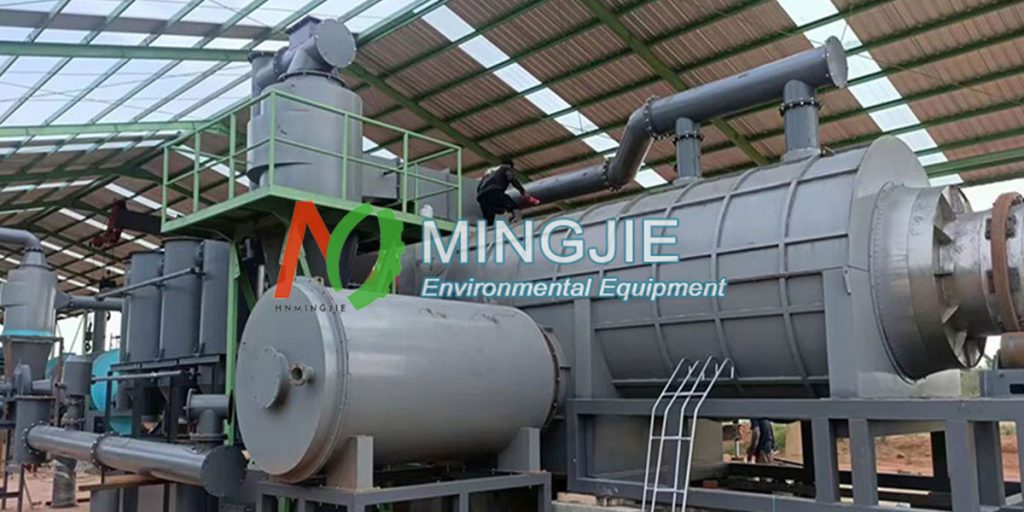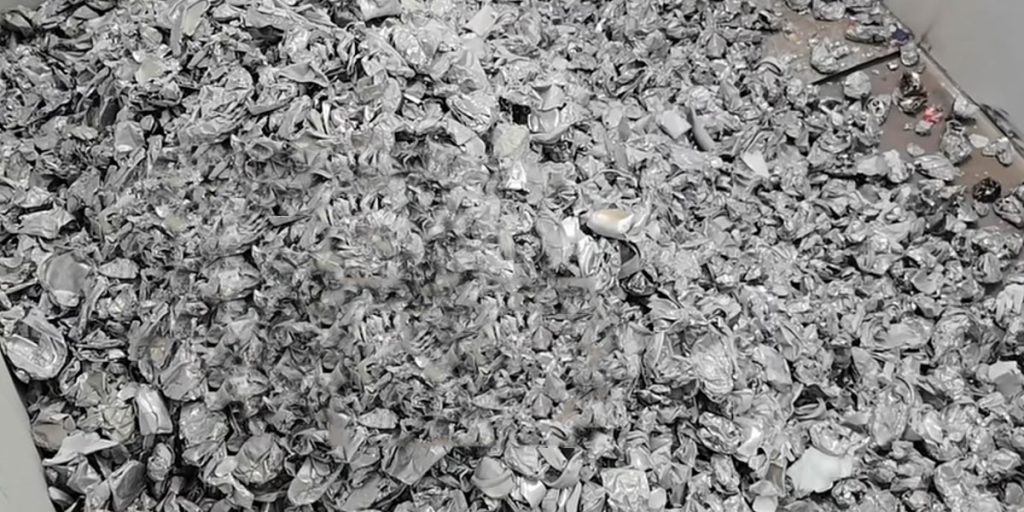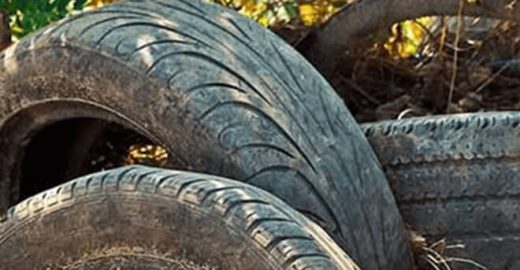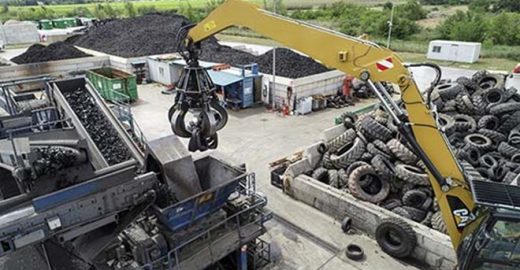The beverage cans depainting machine utilizes pyrolysis technology, eliminating the need for chemical reagents throughout the process. Furthermore, in an oxygen-free or low-oxygen pyrolysis environment, the gases produced by paint decomposition are primarily recyclable pyrolysis gases. After purification, these gases can be reused as fuel, significantly reducing harmful emissions.
The pyrolysis depainting machine is also equipped with advanced exhaust gas purification devices to ensure emissions meet environmental standards. Through a series of efficient treatment processes including condensation, adsorption, and catalytic combustion, it reduces the content of harmful substances in the exhaust gas to extremely low levels.

Continuous pyrolysis equipment offers environmental advantages as a tool for depainting metal cans. Traditional beverage cans depainting methods, such as chemical depainting, require large amounts of strong acids and alkalis. After completing the depainting process, these reagents are converted into wastewater containing heavy metals and organic pollutants. Incineration depainting, on the other hand, produces large amounts of pungent and harmful exhaust gases, including sulfur dioxide (SO₂), nitrogen oxides (NOₓ), and highly toxic dioxins.
Beverage cans depainting machines play a crucial role in improving the quality of recycled metals. After depainting, the metal purity of beverage cans is significantly increased, with virtually no paint residue remaining on the surface.

In the manufacture of food metal packaging and electronic component casings, extremely high requirements are placed on metal purity and surface cleanliness. Tinplate after heat depainting can be directly processed through stamping and stretching without complex surface pretreatment. This not only improves processing efficiency but also effectively avoids product quality defects caused by residual impurities.
Beverage cans depainting machines are also used to recycle aluminum from aluminum cans. High-purity aluminum, during the smelting and casting process, can produce aluminum alloy products with more stable performance and superior quality. This provides a high-quality raw material guarantee for the aerospace and automotive manufacturing industries.

An Australian general waste and tire recycling authoritative body turned to Environment Minister Sussan Ley in November last year with a request to prohibit whole bale tire…

Aliapur – a French end-of-life tire management authority – recently announced a call for applications to participate in a tender to renew end-of-life tire collection and recycling contacts for 2021–2024..